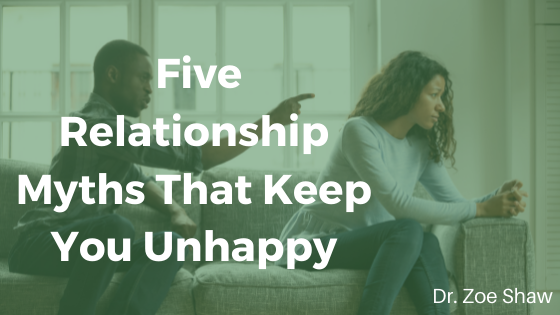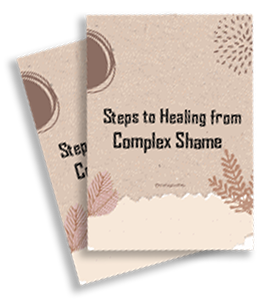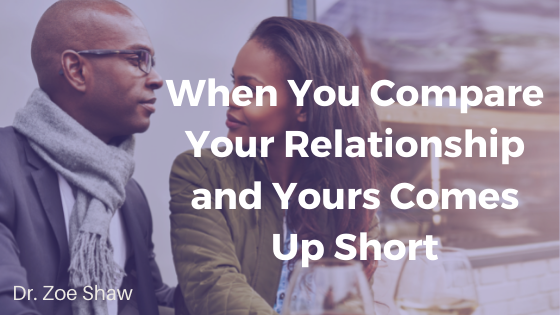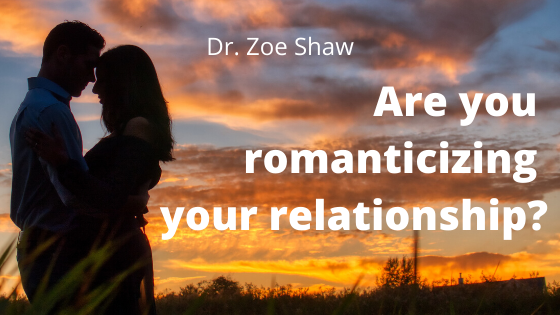
Are You Becoming Your Husband’s Mother?
I might step on some toes today, but it’s in your best interest, so get ready. Are you acting like a mother or a wife to your spouse? Is your daily mantra a constant telling him to do the things-...
1. If I tell him what I want him to do, then it’s not genuine if he does it I often have this conversation with my clients: “What are your needs or what do you want from him?” I’ll ask....
January 21, 2022

I often have this conversation with my clients:
“What are your needs or what do you want from him?” I’ll ask.
She usually has no problem telling me what that is. Then I ask, “have you laid all of that out for him?“
The answer is often no. And usually I get an answer back that confirms a dysfunctional thought pattern, such as: “he should know what I need and if I have to ask him for it, then it doesn’t count or it isn’t authentic if he gives it to me.“
This couldn’t be further from the truth. If you ask and he gives it to you, it is his expression of love that he is motivated to do the things that make you feel loved to begin with.
I had a client who got downright angry with me when we had that conversation. She said “You’re telling me that I have to ask my husband to love me?” This of course is NOT what I said, but how she perceived it.
The reality is that he never completely fulfilled your needs in the beginning. You perceived that he did. Your mind was drenched in dopamine and norepinephrine, which colored the way that you saw him and filled in the gaps with the assumption of good intention because you saw him through that lens.
And when you are both in that place, you do actually act better towards each other.
But those chemicals did their job and they don’t stay forever, which is a good thing because you need your brain back to do life.
So when the chemical dust settles, you are left with what’s really going on in your marriage. Now, you see him through a different lens that is colored with real life and little, sometimes big hurts. And so all that goodwill falls to the wayside and now, instead of filling in the gaps with good intention, it’s filled in with the assumption of bad intention.
This is where the maintenance comes in that is necessary in all long-term healthy relationships. This is the place where the man who you never had to show how to love you becomes the guy that you need to be really specific with about how to love you and you need to find out the answers to his questions, as well, about how to love him too.
This is not a bad thing, but part of the beautiful cycle of the way that life and relationships work.
Think about this. If you find out that your partner loves back rubs and you give him a back rub, is that not an authentic back rub from the heart? If I find out that you love back rubs, I might be like, Oh cool, me too, but I’m not giving you a back rub, because I don’t love you- and that would be weird.
But, when your partner gives you the things that you have told him make you feel loved it is simply an authentic expression of his love for you. No, he can’t and shouldn’t read your mind. If you don’t tell him, then point the finger back at yourself for why you don’t feel loved.
I think you know this one, but it is amazing to me how many people know this on a cognitive level, but still feel very much on an emotional level that conflict is bad and should be avoided at any cost. Some of this comes from your family of origin and the unspoken messages that you received about conflict. Maybe you were chastised for confronting someone in your family or maybe conflict always spiraled down into dysfunctional behavior in your family.
The truth is that conflict exists in all relationships- even when you don’t acknowledge it. It just becomes an internal conflict that seeps out in unhealthy ways in your relationship. When you believe that conflict is bad, you will tend to avoid conflict at all costs. You will adjust your behavior to avoid conflict. You will lie- sometimes to yourself in the form of denial. You will omit and placate to keep conflict at bay. All of those actions create more conflict and bigger blowups when it does happen.
If you manage to maintain a relationship with absolutely no conflict- and I have seen those relationships, then it is also devoid of the deep intimacy that comes with knowing someone and accepting all of them- including the flaws and conflicting parts.
So, what does healthy conflict look like? It’s an honest- I don’t agree with you– I need you to hear me out, followed up with a – but I want to understand your point of view too.
The goal in conflict resolution is never for the other to agree with you, but rather to be heard and respected in the relationship- to have your point of view examined and considered.
It’s not. Love is not enough to bring back your wayward kid, love is not enough to keep your friendship intact, love is not enough to keep a marriage together. Love, is a starting point. It feels good and it is important, but it is not the glue that holds relationships together.
What holds a relationship together? Trust, respect, open communication, mutual consideration. Love makes you want to strive for those other behaviors, but it is not the glue.
I say love is no good reason to get married and lack of love is no good reason to get divorced. Love is ultimately a choice and you should not use it as a litmus test or place too high a burden of it in your relationship. If that feels wholly unromantic or devoid of emotion, it is not. I hope that it sets you free from a mandate attached to an unattainable requirement. When you determine that love is the glue and a requirement, you can easily get stuck in a place of trying to find or create a feeling in order to move forward in the relationship.
I am not saying that I feel that all relationships should stay together forever no matter what. I don’t actually believe that. I feel that there are plenty of reasons why people should end relationships, marriages even. We do ourselves a disservice when our marriage becomes an idol in our lives, but I do feel that we toss away too many marriages because “I just fell out of love.”
There are 900,000 divorces a year and fewer than 10% of them ever talk to a therapist first (Gottman.com).
Most couples in treatment, have been sitting on a therapy-worthy issue for seven years before they get help. Needing help with your maintenance is not a sign of dysfunction. Staying in your dysfunction because you’re too scared of what it means to get help is an unhealthy choice.
Now, you know what I’m going to say here because the opposite is the premise of my entire podcast.
It is so very easy to blame your partner. Even when your partner is to blame, it’s light lifting to choose not to look at yourself and your part in this relationship. I don’t care how horrible your partner is, you still have had a part in this dynamic. It’s critical that you figure out what that part is. And the more adamant that you may feel right now that you had nothing in it, the deeper you have to dig in order to save yourself.
It is not a coincidence that you ended up in your relationship. It is not a fluke that you married your husband. You chose him for reasons that make a lot of sense if you look hard enough and are willing to acknowledge it.
You show up the way that you do for very good reason, even if they are dysfunctional ones. So, because that is the case, when you change, your relationship does as well.
Being an Olympic level blame artist is a wonderful distraction from the real work- changing yourself. Not making changes so that he will change, but making changes so that you will show up healthier.
So, why did I want to cover myths today? Because they are sabotaging our relationships. We all have them. Maybe you can identify a few of your own that I haven’t mentioned.
These myths are shortcuts to procrastination, and complacency in relationships and they can make us doubt ourselves and the health of our relationship.
All relationships are hard in some way. Walking through the tough and doing the hard things creates the ease that we so desire.
You’ve got this! Remember, we aren’t fixing them, we’re fixing you and that changes everything.

You deserve a healthy, loving relationship and it starts with You. Learn how to untangle Complex Shame™ and co-dependency to finally have the beautiful, secure relationship with yourself and others that you’ve always wanted.
Subscribe and as a thank you, I’ll send you the Steps to Healing from Complex Shame™.

I might step on some toes today, but it’s in your best interest, so get ready. Are you acting like a mother or a wife to your spouse? Is your daily mantra a constant telling him to do the things-...

I used to be that girl who felt jealous of other's relationships. You know, THOSE couples who finish each other's sentences, do everything together, say they never fight, are truly the best of friends - maybe even wear matching outfits...

I love Dr. Maya Angelou’s quote “When people show you who they are- believe them”. It’s so good because most issues we have in relationships are that people will tell us who they are, but we decide to create a...
©2025 Dr. Zoe. Designed And Developed By Ogrelogic. Privacy Policy